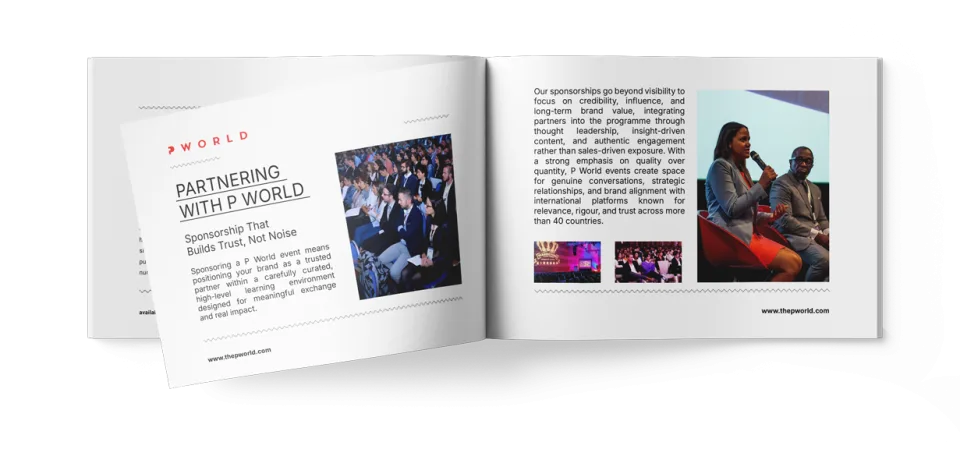

16-17 April 2026
Catalyst Ranch, Chicago
April 16–17, 2026 | Chicago, USA
Save $400 with the Super Early-Bird Rate | Group Discounts Available
Join experts from Coca-Cola, Edelman, U.S. Bank, UCLA Health, Couchbase, and the Center for Reproductive Rights for two transformative days of practical insights, hands-on strategy, and meaningful connection.
In an age of political polarization, economic volatility, and AI-fueled misinformation, communicators must be ready for anything. The Crisis Communications Boot Camp – Chicago 4 equips you with the frameworks, tools, and confidence to protect your organization’s reputation and respond with clarity when it matters most.
How to Defend Your Organization Against Online Rage, Bot-Fueled Crises, and AI-Driven Manipulation
Outrage can be manufactured in minutes — and algorithms can turn a single post into a reputational storm. In this practical, hands-on workshop, global crisis expert Philippe Borremans will show you how to detect online attacks early, leverage AI tools to monitor risk signals, and build long-term digital resilience. You’ll leave with a step-by-step plan to defend your organization, your people, and your truth in an era where misinformation moves faster than facts.
Crisis is inevitable. The difference between recovery and collapse is preparation.
Join the world’s leading communicators in Chicago and gain a playbook to navigate — and thrive — in the new era of crisis.
Save $400 with the super early-bird rate.
Bringing your team? Ask us about special group discounts.
 Brochure download (260 kB)
Brochure download (260 kB)
Trusted by 3,000+ communicators across the U.S. and Canada, with editions in Miami, Los Angeles, New York, Austin, Salt Lake City, Vancouver, Calgary, Toronto, Montreal and Mexico City.
Hosted in Toronto, Montreal, Vancouver, Zurich, Brussels, London, Doha, Dubai, Singapore, and across North America.
Limited to 70 participants to ensure hands-on learning, meaningful discussion, and direct access to experts.
Practical frameworks, tested case studies, and tools built for high-pressure, real-life scenarios.
Author, "Mastering Crisis Communication with ChatGPT: A Practical Guide,"
In today’s climate of division and distrust, communicators must navigate increasingly polarized audiences while staying true to their values and mission. This session explores how to craft messages that foster understanding, empathy, and connection—without compromising on truth or purpose.
Through real-world examples and actionable insights, participants will learn how to frame issues in ways that resonate across ideological lines, communicate with authenticity in emotionally charged environments, and build trust with audiences who may not share the same beliefs. The session will offer practical strategies for driving engagement, avoiding common messaging pitfalls, and leading conversations that unite rather than divide.
Joung-ah Ghedini-Williams, Chief, Communications and Marketing, Center for Reproductive Rights
In today’s polarized world, every statement, action, and silence can carry reputational consequences. This session explores how organizations can prepare for and navigate crises that unfold against the backdrop of social unrest, political division, and heightened public scrutiny. From balancing stakeholder expectations to making timely, values-driven decisions, you’ll learn how to lead with empathy, clarity, and consistency—protecting both your organization’s credibility and your people.
Cheryl Leamon, Senior Vice President, U.S. Bank
Today, brands are no longer judged only by what they sell — but by what they stand for. Yet taking a stand can spark division, criticism, or even organized outrage. This session will unpack how to prepare for and manage backlash when your organization’s values are questioned, and how to keep your message grounded in empathy, transparency, and long-term trust.
Regine Nelson, Former Internal Communications & Employee Engamenet, Leader, Couchbase
In times of crisis, relationships determine the speed, tone, and success of your response. This session explores how building strong, trust-based relationships long before a crisis hits can be the difference between escalation and resolution. Through real-world examples, you’ll discover how transparent communication, internal alignment, and stakeholder trust serve as the backbone of effective crisis management. You’ll leave with practical strategies for fostering relationships that not only withstand crises — but help your organization emerge stronger from them.
Tricia Taylor, Vice President, Corporate Communications and Change Management, Coca-Cola Bottlers' Sales & Services
What happens when the crisis is not an incident—but the operating environment itself? This session takes delegates inside Black Rock City, a temporary metropolis built each year in one of the most extreme and isolated environments on earth, where weather, terrain, remoteness, and infrastructure constraints are the constant emergency. Drawing on real-world experience from a mission-driven nonprofit with global reach, this case-study–driven session explores how year-round planning, inter-agency coordination, and operational discipline underpin resilience at scale. Through 2–3 concrete incidents, the session examines what has gone wrong, what has worked, and how preparedness is stress-tested when multiple jurisdictions, competing priorities, and limited resources collide. Delegates will gain practical insights into coordinated crisis readiness, decision-making under uncertainty, and how innovation can emerge from constraint—lessons directly transferable to complex organizations operating in volatile, high-risk environments.
Marnee Benson, Director of Government Affairs, Burning Man
When your organization becomes the headline, message discipline can be the difference between chaos and clarity. In this powerful session, Pamela, Chief Communications & Marketing Officer at SAG-AFTRA, shares how her team navigated one of the most visible and emotionally charged crises in recent media history — the Hollywood actors’ strike. Drawing on lessons from months of intense media scrutiny, she reveals how to build and sustain message dominance across traditional and social media, manage opposition narratives, and maintain credibility when the pressure is relentless. From aligning internal stakeholders to balancing emotion and transparency in public messaging, Pamela will show how strategic clarity and empathy can turn a moment of crisis into a masterclass in leadership and trust-building.
Pamela Greenwalt, Chief Communications & Marketing Officer, SAG-AFTRA
When a crisis strikes, leaders often focus on strategy, messaging, and external perception—but the wellbeing of the team behind the response is just as critical. This session explores how to lead with empathy, composure, and clarity during high-pressure situations. You’ll learn how to recognize signs of burnout, manage team morale when stress is high, and create an environment of psychological safety where people can perform at their best. Drawing on real-life crisis experiences, the session offers practical tools for balancing performance with compassion, ensuring your team remains strong, supported, and united—no matter the pressure.
Alisha Westfield Celestine, Executive Director, Communications, UCLA Health
As AI evolves, so do the threats communicators face. Deepfakes and AI-generated misinformation are redefining what “truth” looks like in a crisis—and testing the limits of public trust. From fabricated videos that go viral within minutes to synthetic voices that can impersonate leaders, crisis teams now operate in a landscape where seeing is no longer believing.
In this session, you’ll gain an overview of how AI is reshaping the crisis landscape, with a special focus on the growing impact of deepfakes. Learn how to identify, monitor, and respond to synthetic media attacks, strengthen your verification processes, and adapt your crisis response plans to this new era of digital deception.
Dave Fleet, Managing Director, Global Head of Digital Crisis, Edelman
In today’s hyper-polarized and AI-accelerated world, outrage can be manufactured within minutes. Coordinated networks of bots, fake accounts, and generative AI tools can turn a single post into a full-blown reputational crisis. This practical, hands-on workshop will help you detect online attacks early, use AI to your advantage, and build long-term digital resilience.
You’ll learn how to separate real criticism from AI-generated noise, deploy AI tools to monitor risk signals, protect your team, and maintain public trust in an era where truth itself can be manipulated by algorithms.
Workshop Agenda
Opening Keynote: The Anatomy of Online Rage
How rage farming works, how bot-fueled narratives spread, and what makes organizations vulnerable.
Detecting Bot-Amplified Attacks
How to recognize coordination patterns, monitor engagement spikes, and tell the difference between organic and manufactured outrage.
Building a Truth Bank for Rapid Response
How to create trusted, ready-to-use messages, counter false narratives, and react fast when a storm breaks.
Crisis Response in the First 24 Hours
How to act under pressure, decide when to speak and when to hold, and manage communication with key stakeholders.
Leveraging AI Tools for Crisis Detection and Response
Hands-on demonstration of how communicators can use AI for real-time monitoring, social listening, predictive analysis, and message optimization.
Digital & Physical Security
How to protect your accounts, your data, and your people when online outrage spills into the real world.
Building Long-Term Resilience
How to train teams, build strong networks, and prepare for the next attack before it happens.
Closing & Q&A
Key takeaways, practical next steps, and open discussion.
About Your Workshop Leader
Philippe Borremans is a crisis, risk, and emergency communications expert with more than 25 years of international experience. He has advised leading organizations including the World Health Organization, the European Union, and the United Nations, as well as major global brands such as Mastercard and Chanel. His work focuses on epidemic and pandemic preparedness, disinformation defense, and rapid response strategies in high-pressure situations. Philippe has worked across Europe, Africa, Asia, and the Caribbean, supporting governments, corporations, and international institutions.
He is also the author of “Mastering Crisis Communication with ChatGPT: A Practical Guide” and a frequent keynote speaker and trainer at global communications events. Philippe is known for his practical, no-nonsense approach and for turning complex digital threats — like bot-amplified outrage and misinformation — into clear, actionable communication strategies. His workshops and trainings help organizations detect, respond to, and build long-term resilience against modern online crises.
At P World, we work with organisations that want to build trust, shape meaningful conversations, and engage senior decision-makers. Our platforms offer credible thought leadership and targeted engagement with highly relevant audiences. If you are looking to elevate your brand through strategic partnerships that deliver real value, we would be glad to explore opportunities together.
Sponsoring a P World event places your brand inside a high-trust environment with influential decision-makers who shape strategy and opinion. Sponsors are positioned as credible partners through meaningful visibility, thought-leadership alignment, and direct engagement, creating lasting brand value beyond the event itself.
 Sponsorhip brochure download (162 kB)
Sponsorhip brochure download (162 kB)

Download our Sponsorship Brochure
Explore all sponsorship packages, benefits, and pricing.
Address: 656 W Randolph St Ste 4E, Chicago, IL 60661, United States
Catalyst Ranch in Chicago is a unique meetings and events venue designed for companies to go offsite for thinking, planning, developing, creating new products, solutions, and innovative ideas. The Ranch was named the “Best Conference Venue” by Illinois Meetings & Events in 2012 and 2013 and the Professional Convention Management Association’s Convene Magazine “Best in Show” for Small Meetings 2014. The design inspires play for grown up companies with today's big challenges. Play is the first step toward creativity. Toys, games, color, texture, natural light, comfortable seating, and space to roam all contribute to the stimulate creativity and communication. For groups of 3 to 120, it's a wondrous environment that can be configured to meet your needs. Imagination, environment, creativity, innovation.

This program can also be delivered as a tailored in-house training for your organization. We adapt the content to your industry, objectives, and level of maturity, focusing on real challenges your teams face and the decisions they need to make. In-house formats allow your people to align on a shared approach, work through relevant scenarios, and build skills they can apply immediately.
If you’re exploring an in-house option, tell us a bit about your team, priorities, and timing, and we’ll recommend the right format.
Contact us about in-house training